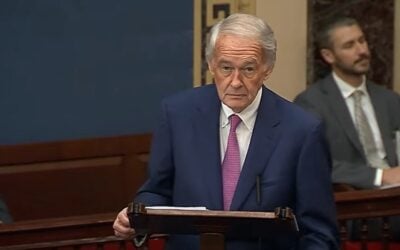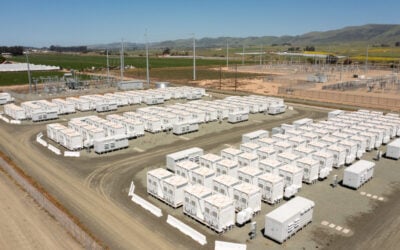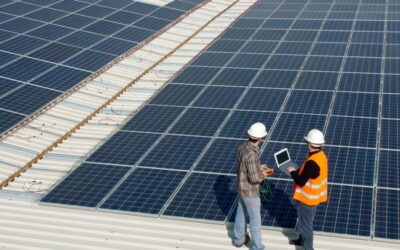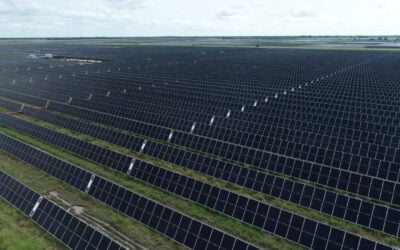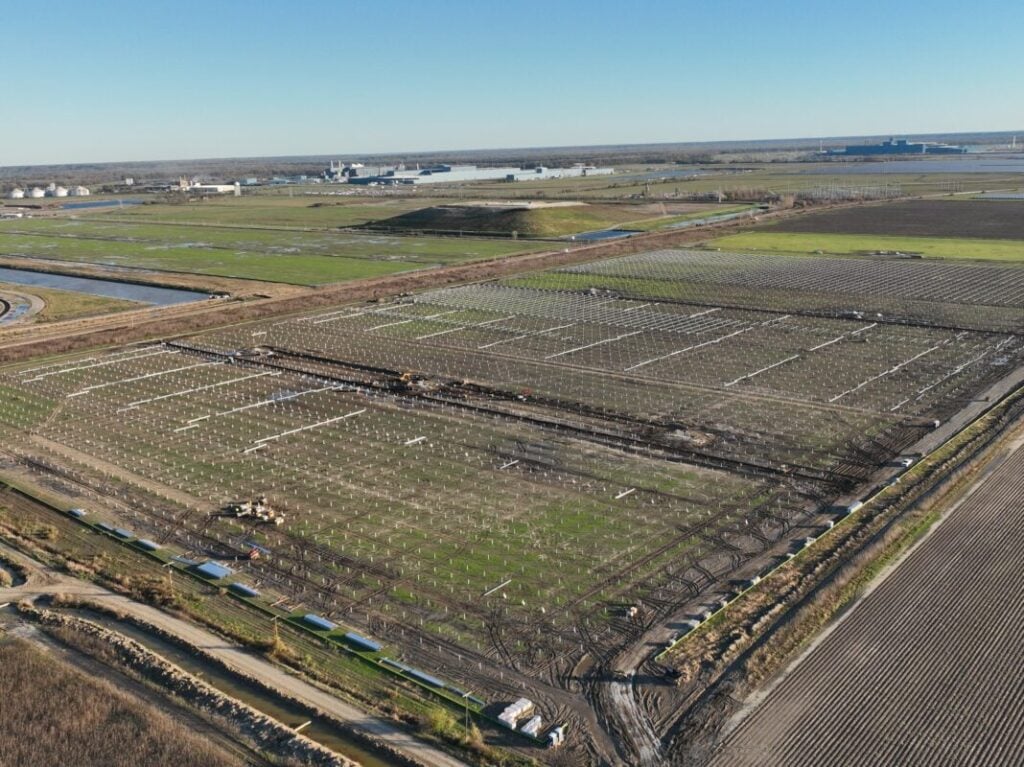
Another edition of our irregular news in brief feature: Eos Energy Enterprises closes a US Department of Energy loan deal, UBS picks an AI-driven asset optimiser and Green & Clean Power has reached financial close for a solar-plus-storage project at an Arkansas steel rebar plant.
Zinc battery player Eos secures US$300 million LPO loan
Eos Energy Enterprises has closed a US Department of Energy (DOE) loan agreement to help fund its zinc hybrid cathode battery storage manufacturing plans.
Enjoy 12 months of exclusive analysis
- Regular insight and analysis of the industry’s biggest developments
- In-depth interviews with the industry’s leading figures
- Annual digital subscription to the PV Tech Power journal
- Discounts on Solar Media’s portfolio of events, in-person and virtual
Eos announced on 3 December that it has secured the US$303.5 million loan guarantee from the DOE’s Loan Programs Office (LPO).
The funding will support around 80% of the cost of Project American Made Zinc Energy (AMAZE), the company’s roadmap to creating 8GWh of annual production capacity from automated lines by 2027.
Eos noted that the agreed sum is lower than the US$398.6 million value announced in August 2023 (Premium access) due to operational costs coming in lower than had been forecast.
With about 90% of the manufacturer’s supply chain now US-based, CEO Joe Mastrangelo claimed that a decision made five years ago to move manufacturing back to the US from China “has been transformative to our business and positioned Eos at the forefront of the American manufacturing renaissance.”
The Pennsylvania-headquartered startup is the first-ever recipient of a DOE Title 17 Clean Energy Financing Program agreement to support a domestic battery maker. Title 17 financings support clean energy deployment and reinvestment in energy infrastructure in the US.
Although Eos reported net loss attributable to shareholders of US$342.9 million in Q4 2024, and just US$900,000 in revenue for the quarter, the company had always been clear, ahead of its NASDAQ listing in mid-2020, that achieving profitability would be contingent on the scale-up and automation of manufacturing lines to meet claimed demand for its long-duration energy storage (LDES) technology.
UBS picks Avathon AI platform for Texas projects
UBS Asset Management has selected an AI platform from technology provider Avathon to manage the performance of a Texas battery storage portfolio.
Avathon, formerly known as SparkCognition, said on 3 December that its artificial intelligence platform would optimise a four-project portfolio with a total output of 730MW, which UBS is developing in Texas’ ERCOT market.
The Avathon Industrial AI for Renewables platform is an asset performance management (APM) solution onboarded with predictive analytics. The company, which offers different adaptations of the platform across several industries, claims it can detect anomalies and recommend maintenance actions for BESS asset owners and operators.
UBS Asset Management co-head of energy storage infrastructure Mark Saunders said that the platform’s integration would allow UBS to “focus on operations and asset management tasks that directly benefit the profitability of our commercial battery storage investment projects.”
“The use of generative AI for compliance management alone is a value-add, on top of the many other features,” Saunders said.
The deal is thought to pertain to a 730MW/1,049MWh BESS portfolio, for which UBS secured financing from Deutsche Bank and First Citizens Bank earlier this year. Although at that time, in early September, UBS said the projects were all due to go into commercial operation before the end of 2024, a release from Avathon referred to commercial operation dates (CODs) in 2024 and 2025.
In May, UK-based energy storage asset route-to-market optimiser and energy trading firm Habitat Energy said it would optimise the charge-discharge and market participation of a 730MW UBS portfolio through ERCOT wholesale market opportunities.
UBS Asset Management did not respond to previous enquiries to confirm that the deals refer to the same portfolios. Energy-Storage.news sent a similar enquiry today, along with additional questions on how the roles of asset optimiser Avathon and route-to-market optimiser Habitat Energy will interact, and will update this story when it receives confirmation or clarifications.
Arkansas steel mill will be directly fed by large-scale solar-plus-storage plant
A behind-the-meter solar PV and battery storage system will directly supply renewable electricity to a ‘sustainable’ steel rebar mill in Arkansas, US.
Hybar, a startup building a mini steel mill in the Arkansas city of Osceola, is the off-taker for a 105MW solar PV installation paired with a 160MWh battery energy storage system (BESS) spanning 500 acres adjacent to the rebar plant.
The renewable energy project is being developed by Green & Clean Power (GCP), a sister company to the steelmaking startup. GCP said on 3 December that it has raised around US$300 million debt and equity financing for the project.
Germany’s KfW IPEX-Bank, an independent commercial bank owned by the country’s state-owned development bank KfW, provided US$165 million construction debt financing. Institutional investor Arkansas Teacher Retirement System (ATRS) made a US$100 million takeout financing commitment towards the construction and operation of the solar-plus-storage project.
GCP’s announcement did not mention where the remaining funding will come from. Hybar, founded to develop the low-cost sustainable production of steel – a traditionally carbon-intensive industry – counts Koch Inc., impact investor TPG Rise Climate and metals industry investor Global Principal Partners (GPP) among its backers.
KfW IPEX-Bank also provided financing toward the steel mill itself last year. The renewable power plant will supply about 40% of its annual total power consumption, while the steel rebar will be produced from recycled scrap metal.
“To our knowledge, this will be the first renewable power installation in the industry to provide a steelmaking facility with solar-generated electricity on a behind-the-meter basis,” Global Principal Partners partner Ari Levy said.
Levy, who is also chief financial officer (CFO) for GCP and Hybar, added that other industrial businesses “seek to invest in renewable power generation projects hundreds of miles away from their closest operation as a means of carbon offsetting.”
The solar-plus-storage project is already under construction. Completion is anticipated in the autumn of 2025 while the rebar plant is expected to come online a little earlier in summer.
While the solar-BESS hybrid plant will be connected behind-the-meter to the Hybar mill, developer GCP has also applied for interconnection to the MISO grid, where, after a connection process anticipated to take around three years, it could sell electricity to third-party customers.

